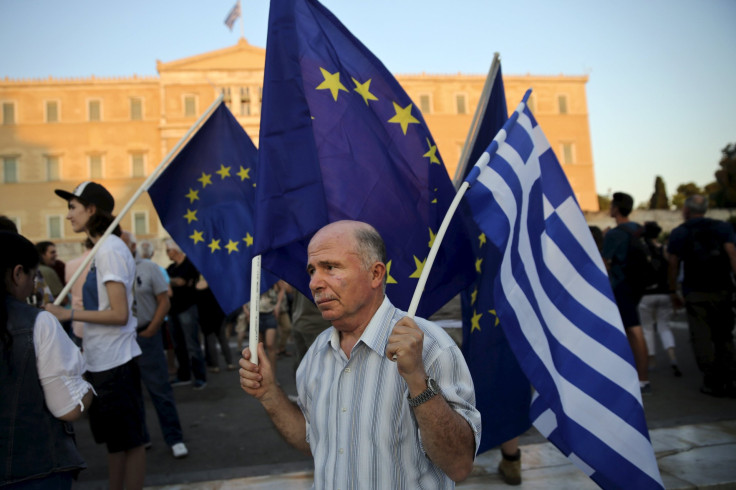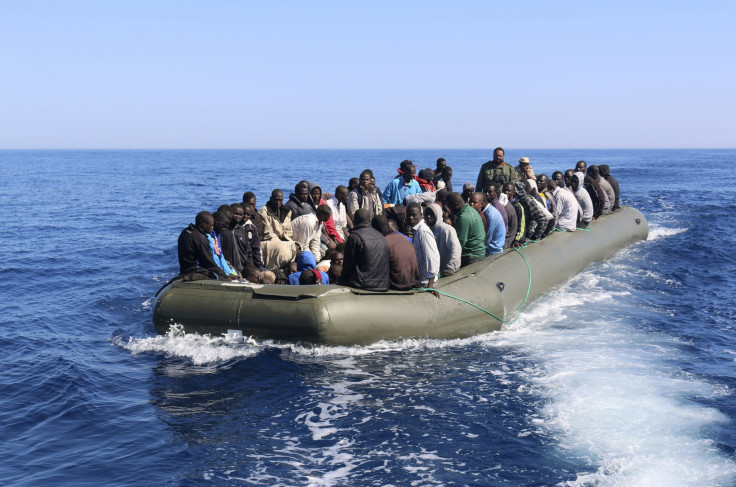Greek Debt Crisis: A Third Bailout's On The Way But Is The Worst Yet To Come?

The road to economic growth is paved with austerity’s stunted victims: As representatives of the EU, European Central Bank and International Monetary Fund -- known as the Troika -- book their flights to Athens for talks on a third bailout, Greece’s body politic is looking distinctly shrunken.
The debt crisis is taking its toll -- not only on Greek bank accounts but on Greek minds. Suicide rates have jumped by more than a third, a quarter of adults are unemployed and 40 percent of children are living in poverty. It’s not only vintage clothing stores that have made a return in Athens: In the last seven years, Greece’s economic collapse has pushed back living standards for the poor to 1980.
Life for the rich is little better. Their incomes, when income tax and inflation are taken into account, have returned to Madonna’s heyday of 1985.

But that’s not all. Greece’s newest problem is the record number of migrants, especially Syrian refugees, who are arriving daily by boat, in a country that can ill afford to keep them. Civil society is suffering. Nonprofits are running out of money to help those in need.
More than 800,000 Greeks have been cut off from medical access due to poverty or lack of insurance. Anastasios Yfantis, a social worker at a Médecins du Monde (Doctors of the World) hospital in central Athens, said in an interview with the Financial Times, “We started seeing more and more kids here without really basic vaccinations, for things like hepatitis.” The government had run out of supplies and was asking people to pay for these services. “But people can’t pay,” Yfantis said.
Charities are paying the price for years of austerity. Cuts to healthcare, homeless shelters and mental health providers have been smoothed over by the charitable sector, but major cracks are starting to show.
14 charities you can support to help Greece's vulnerable populations: http://t.co/KoirgCk22M pic.twitter.com/94CBOebjrl
— Mashable (@mashable) July 17, 2015Praksis, a nongovernmental organization that offers social and medical services to vulnerable populations in Greece, focused on health when it was founded 11 years ago, but due to the financial crisis has expanded its care to include shelter, vaccines and medicine, legal and psychological services for the 80,000 people it serves each year.
"If this situation we're in now is not getting stabilized, we will have to face a complete collapse of the health system in Greece,” Marie Halaka, Praksis fundraising director, told Mashable.
Nikitas Kanakis, president of Greece’s branch of Médecins du Monde, agrees.
The burden of care is proving too much.
“In the next weeks, we will have a problem. And we can’t prepare, because we don’t actually know what will be the result of the negotiations.”
Most donations have stopped due to bank closures. The elderly are especially vulnerable to cuts, with slashed pensions and fewer family members to support them. But the youngest members of Greek society are also at risk.
The president of Greece's largest children's charity told Sky News that his organization is running out of money because of the economic crisis.
Kostas Giannopoulous, who runs the children’s charity Smile Of The Child, said refuge homes in Athens might be forced to close within months because people and companies can no longer afford to give money to charities.

Smile Of The Child looks after 350 children full time, many of whom have been abandoned by their parents. Giannopoulous wants to do all he can to stop them from being abandoned a second time.
"I would never dare to think we would do that. So that's why we try very hard to persuade people, and Greeks from overseas (to donate)," he told Sky.
As the Greek government plans to welcome the Troika back, Giannopoulous, along with thousands of others, are fighting to keep civil society alive.
As the suits in Brussels loosen their ties, the people of Athens are tightening their belts.
© Copyright IBTimes 2024. All rights reserved.






















